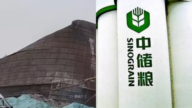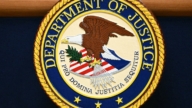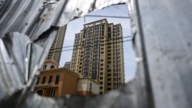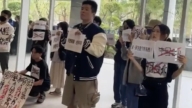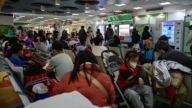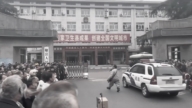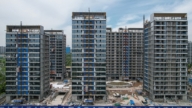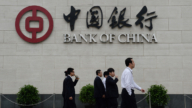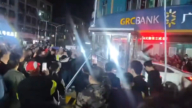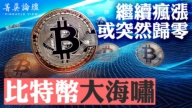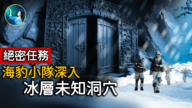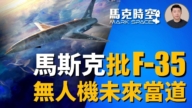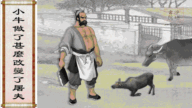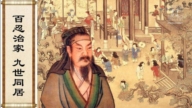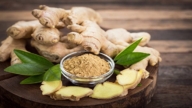【新唐人2011年12月7日讯】为期两周的美式话剧《绝密:五角大楼文件之战》日前在中国上演,受到中国民众的共鸣。剧情描述40年前发生在华盛顿的一起举足轻重的诉讼案,美国政府状告《华盛顿邮报》,最后败诉,剧情凸显了公众对政府的施政行为有知情权。
《五角大楼文件》是美国政府的绝密文件,共有两百多万字,详细记录了上个世纪60年代,华盛顿发动越南战争的整个研究决策过程,和尼克松白宫的秘密。
《美国之音》报导,《绝密:五角大楼文件之战》藉由舞台剧,重现了1971年一场具有里程碑意义的诉讼案,《纽约时报》得到了《五角大楼文件》部分内情,并刊印了前三期,随后政府禁止继续刊登。《华盛顿邮报》不受禁令限制,决定刊发这份文件的更多内容,美国政府就此状告《华盛顿邮报》。最终败诉。
剧情让观众反思:政府在什么情况下有保护国家机密的权力?而民众在什么时候有权知道他们的政府在误导他们?
制作人洛温博格女士表示,她花了两年多的时间才使这出剧在中国上演,她说:“在广州的演出很棒。当演到格雷厄姆﹙《华盛顿邮报》董事长﹚决定刊登五角大楼文件的时候,全场爆发了掌声。当法官裁定《华盛顿邮报》胜诉的时候,又一次响起了掌声。”
一位不愿具名的大陆人士表示,不知我们在新闻自由方面能不能盼到这一天。
而北京结石宝宝家长赵连海说,希望中共当局在民意方面也能借鉴其他国家开明之处,把知情权归还民众。
赵连海:“美国政府他们有时候也不希望一些信息被人知道,但是最终还是在民间包括媒体一再的追问下,政府最终还是……作了让步,实际上这是美国政府一个非常开明之处。谈到中国政府,期望他们也能够学习这些其他国家一些政府好的作法。把一些应该归还我们的权力,彻底归还给我们。”
话剧主编美国南加州大学教授杰弗里‧考恩表示,很高兴看到这部戏剧在中国上演,因为这些主题对中国人很重要,中国在为自身的体制基础而挣扎。
众所周知,在中共独裁专制下一切“不和谐”事件都被定性为“国家机密范畴”,如官员嫖娼、群体事件、松花江污染、毒奶事件等等。
赵连海:“在我们这个土地上,实际上很多我们应该了解到的信息,政府从来是不公开的,甚至以各种理由而拒绝,简单来说像我们结石宝宝的很多事情,目前来讲我们公众都了解非常有限,国家在这方面,政府、中国政府在这方面一直是高度的保密,不仅仅如此,更多的事情也都是这样。”
《绝密:五角大楼文件之战》演出后,上海和北京的观众参加了讨论会,但类似的讨论在北京大学和广州的中山大学却被取消。
赵连海希望更多的民众挺身出来,积极要求自己的权益,他也希望国际社会能对中共当局施加一些必要的压力,让民众的合法权益能够得到保障。
新唐人记者李韵、萧宇采访报导。
American Play Arouses Chinese Echo of Right-To-Know
The American drama Top Secret: the Battle for the Pentagon Papers
was recently shown in China, inspiring Chinese citizens.
The story describes a major lawsuit which took place
40 years ago in Washington,
where the U.S. government lost its case against
the Washington Post.
The drama highlights the public’s right to know about
government administration.
U.S. government’s top-secret documents,
The Pentagon Papers contain over two million words.
The papers detail Washington’s decision making process
in the run-up to the 1960’s Vietnam War and the secrets of the Nixon cabinet.
According to Voice of America reports,
the play, Top Secret, reproduces a landmark 1971 lawsuit.
After The New York Times had obtained and published the
first three series on the Pentagon Papers,
Nixon obtained a federal court injunction forcing the paper
to cease publication.
The Washington Post pitted against the injunction by publishing
more information –leading to the U.S. government also filing a lawsuit against them.
Top Secret provokes viewers to reflect:
“In what circumstances can a government exercise its right to protect state secrets?
When do a nation’s citizens have the right to know that
their government has been misleading them?”
Executive producer, Susan Loewenberg, says she spent
over two years to bring the drama to China.
“It was wonderful the other night in Guangzhou when
Kay Graham ( president of Washington Post ) makes the decision to publish, they (viewers) broke out in applause,"
“And when the court, when the verdict came down from the judge
in favor of the Washington Post, they broke out in applause again.”
Anonymous mainland Chinese: “We don’t know
if we can see the day when free press becomes reality .”
Beijing resident Zhao Lianhai –-father to a kidney-stone baby—
expects the CCP regime to learn from democratic nations to return freedom of information to Chinese citizens.
[Zhao Lianhai, Beijing resident]: “On some occasions,
the U.S. government also kept secrets,
but in the end, under the pressure of civil society
which includes the media, it yielded.
This is in fact a very civilized action taken by
the U.S. government.
We expect the Chinese authorities to learn from other
governments’ civilized practices, to really return to us the rights that we should have.”
Professor at the University of Southern California, Playwright Geoffrey Cowan,
says he is pleased to see Top Secret being staged in China.
Because the Chinese people are placing great importance in these aspects,
China is struggling with its own institutional base.
It is well known that anything defined by
the CCP regime as causing “disharmony" becomes a “state secret “.
Officials being involved with prostitution, mass protests,
pollution of the Songhua River and the tainted milk scandals have all fallen into the state secret category.
[Zhao Lianhai, Beijing Resident]: “In our country,
lots of information that we should have known about have never been made public by the government,
who uses many excuses to avoid revealing information.
For example, so much about the kidney stone babies are
unknown to the public.
The Chinese government classifies the issue as highly confidential.
The government does the same with other issues. “
In Shanghai and Beijing, the audience attended post-play
discussions, but similar discussions held in Peking University and Zhongshan University were canceled.
Zhao Lianhai is appealing for more civilians to come forward
to actively seek their own rights and interests.
Zhao also expects the international community to put
necessary pressure on the CCP,
helping to protect the Chinese people’s legitimate rights
and interests.
NTD reporters Li Yun and Xiao Yu


